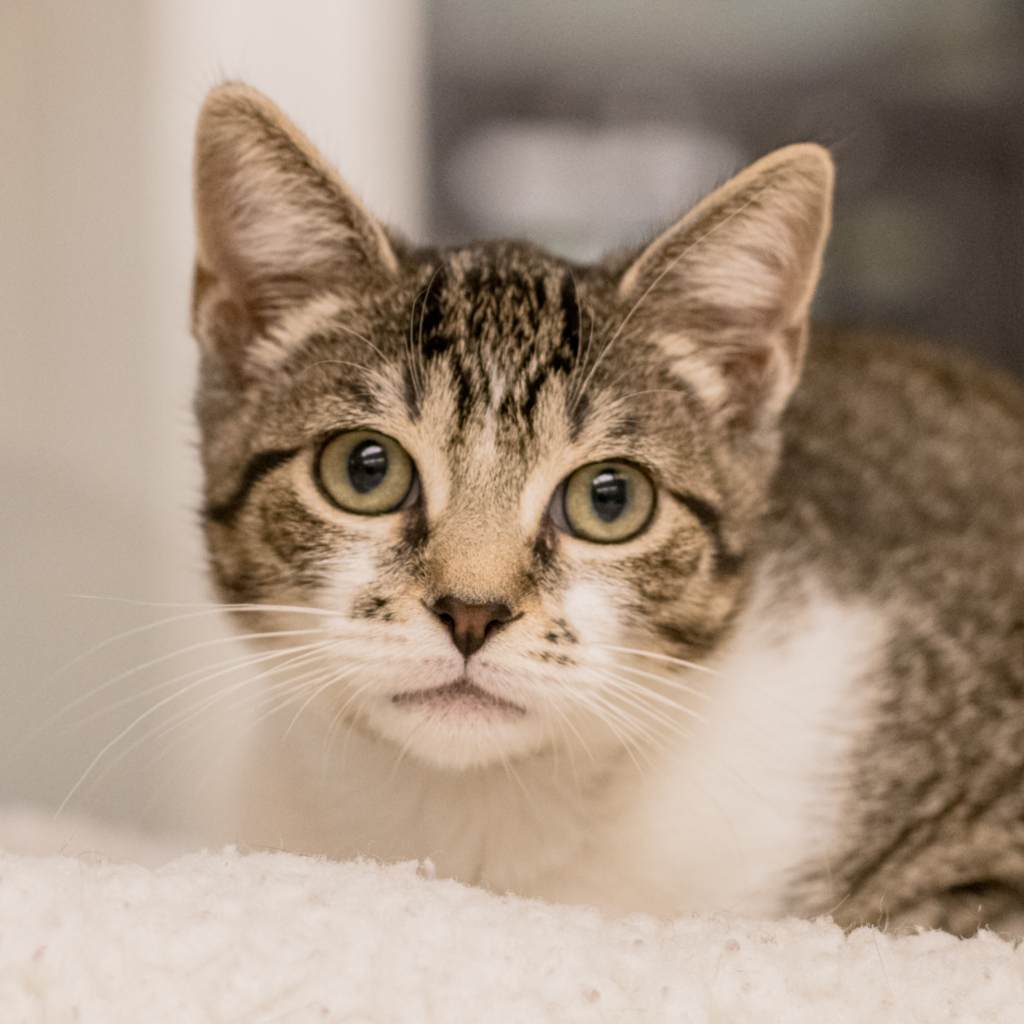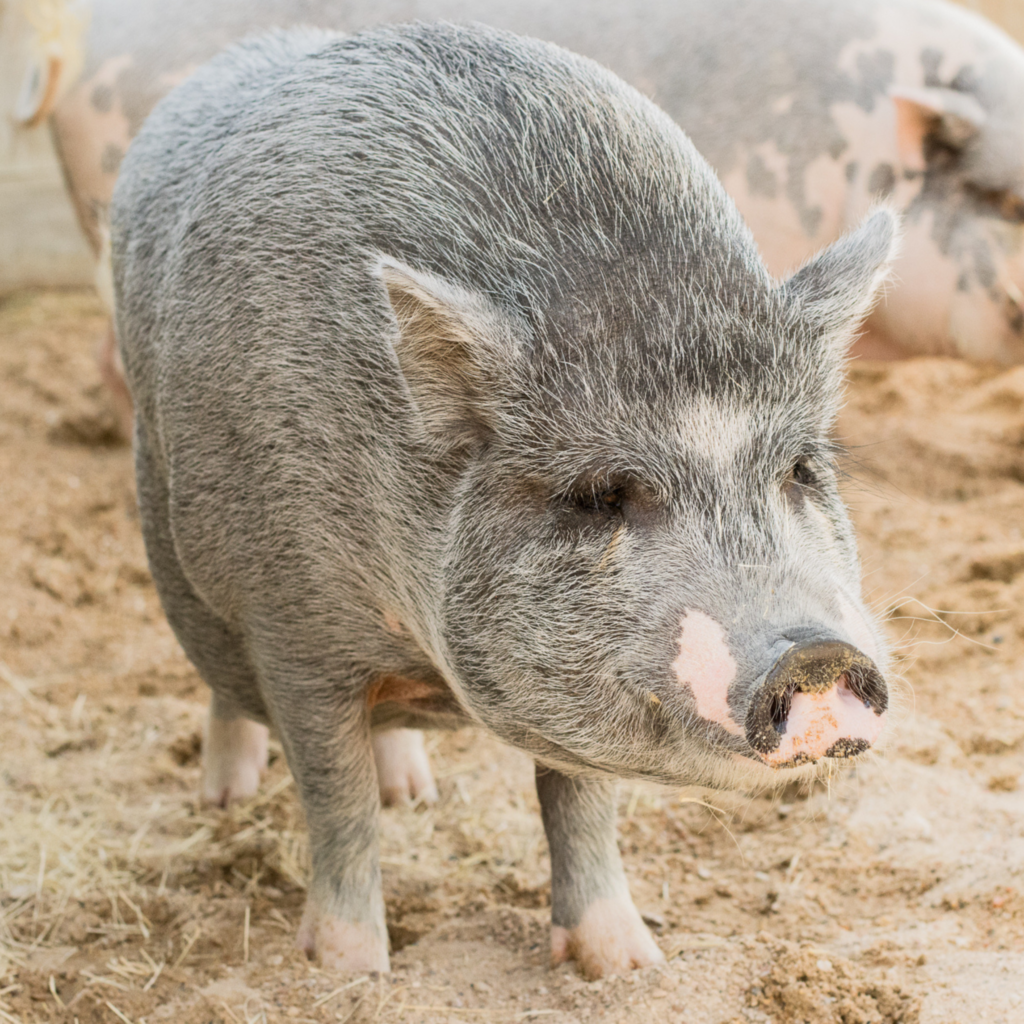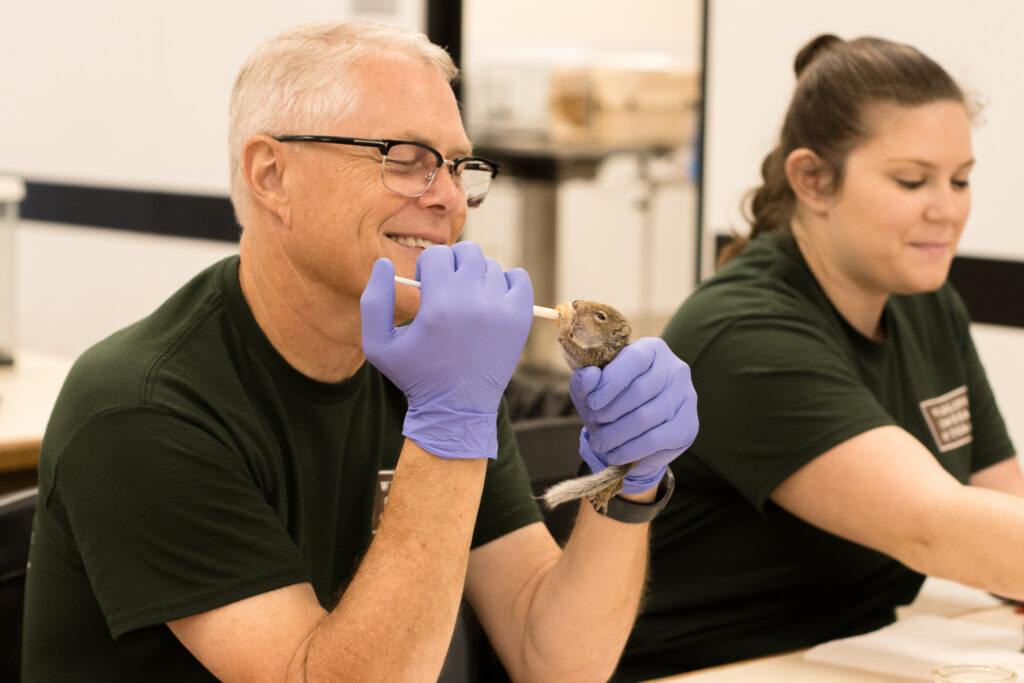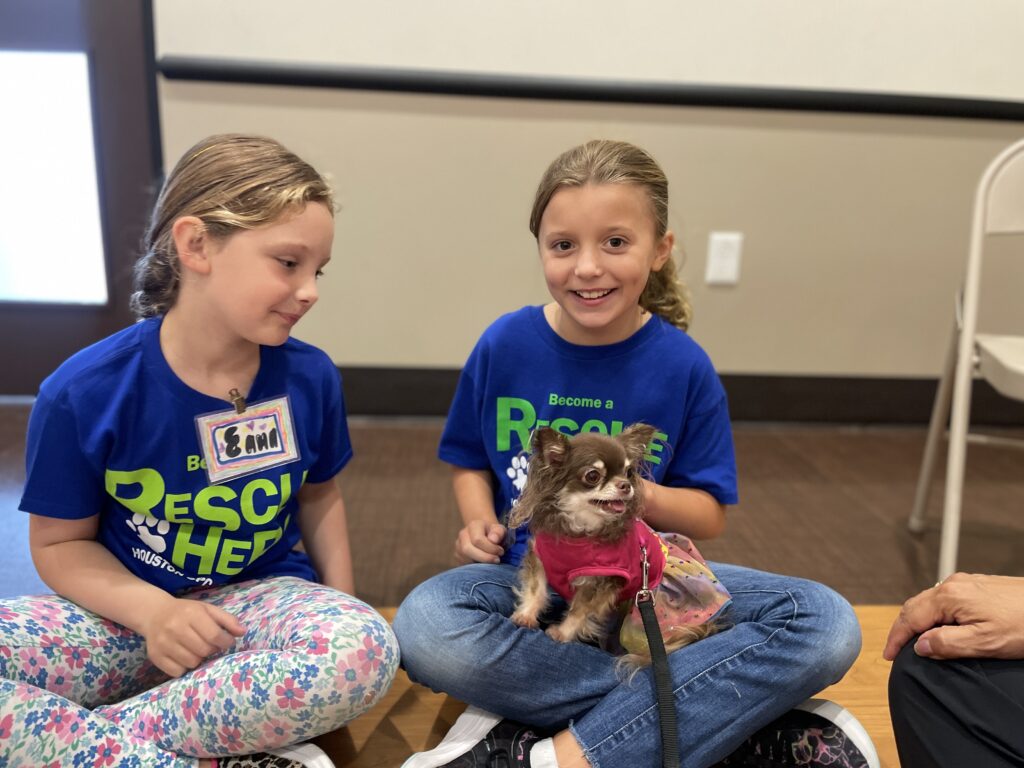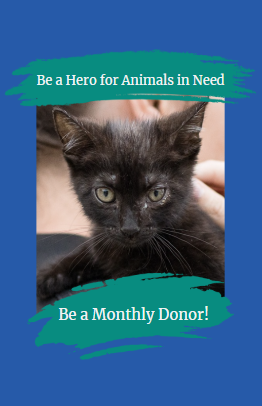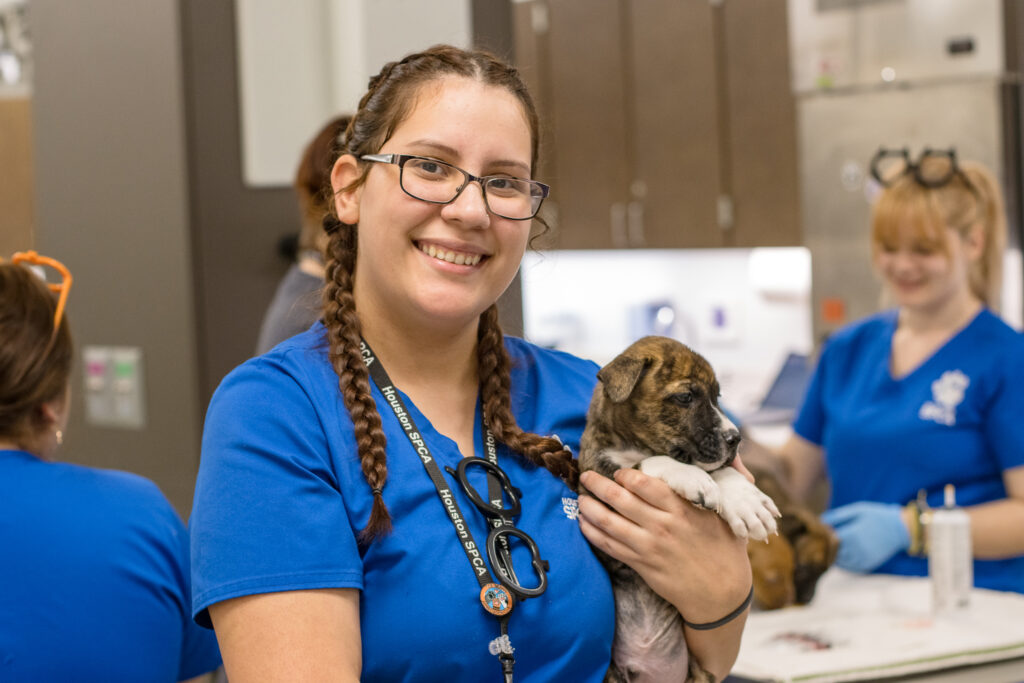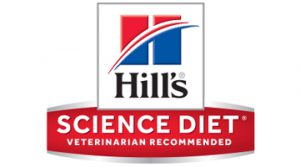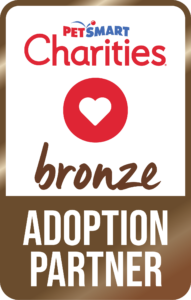(April 24, 2023)
Just like in humans, pets can experience heart complications and a variety of diseases as they age. However, even your young pets can be at risk, and maintaining heart health in your beloved cat or dog should be top of mind. Regular heartworm prevention and check-ups with your family veterinarian can keep your pet’s heart strong and healthy.
Preventing heart disease
The simplest and most important disease to prevent is heartworm disease. It is very prevalent across the United States, but especially on the Gulf Coast due to our mosquito population. Indoor and outdoor pets can get heartworms, as well as both cats and dogs.
It is just as important to have your cat on regular heartworm prevention. The effects of heartworms are much more severe in cats earlier on. Where dogs can have dozens of heartworms infect the heart, cats normally only get one or two at the most and can die very suddenly without any other symptoms or warnings.
An unexpected way to prevent strain on your pet’s heart is to brush their teeth regularly! Keep up with your pet’s yearly dental cleanings and brush their teeth in between to prevent bacteria from entering their bloodstream and damaging the heart. This is more prevalent in smaller breeds, but dental care is important in all sizes and breeds of pets!
According to the American Heart Association, dogs don’t experience a buildup of plaque in their arteries the same way people do. Therefore, although beneficial to their health overall, a good diet and exercise habits won’t do the same for heart health as they might for us. The best way to keep an eye on your pet’s heart health is regular visits to your family veterinarian to catch congenital abnormalities or degenerative diseases as they age.
Symptoms of heart disease and declining heart health
For conditions like heartworm disease or heart murmurs, your pet might not show symptoms right away. External signs of progressing heart disease include, but are not limited to:
- Coughing, due to an enlarged heart compressing breathing tubes in the lungs
- Exercise intolerance, due to the heart’s inability to pump blood throughout the body effectively
- Swollen abdomen, due to free fluid backflowing from the heart into the abdominal cavity, though this is a later-stage symptom.
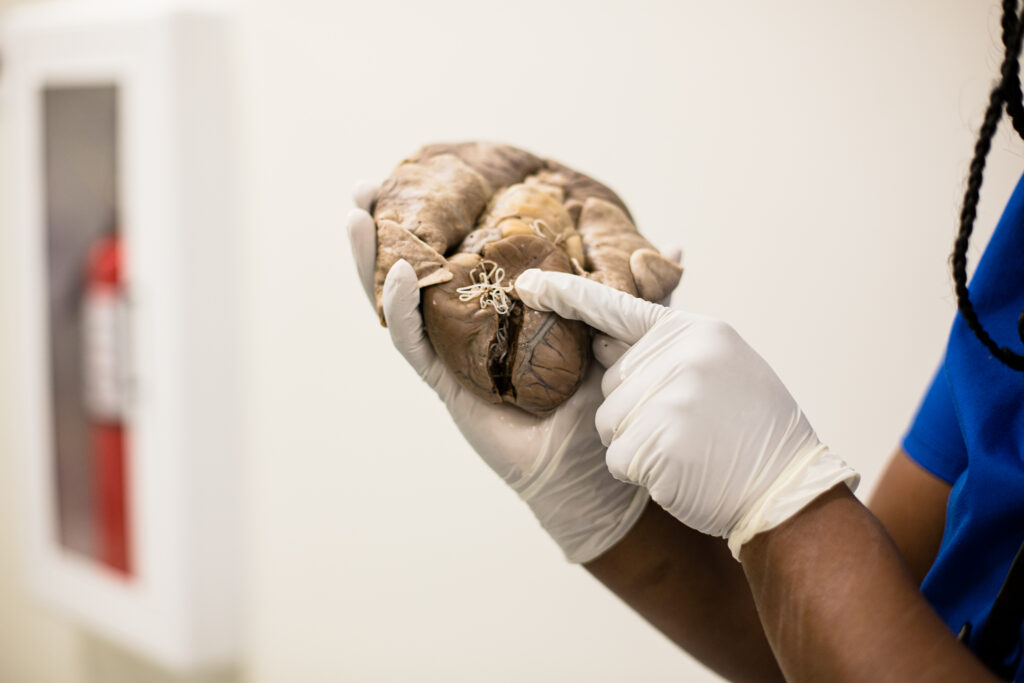
A sign of a heart disease called hypertrophic cardiomyopathy in cats can be decreased use of their hind limbs due to lack of blood flow. This disease is most common in adult male cats. Their heart muscles are rigid, thick, and strong. It might sound like a good thing, but this actually means the heart muscles aren’t flexible enough to effectively move blood through the chambers. Other symptoms can include loss of appetite, shortness of breath, and lethargy. Your cat might also have bluish nails and paw pads from a lack of oxygen flow to the limbs.
Large breeds like Dobermans can be prone to the opposite condition: dilated cardiomyopathy. Their heart is large with thin walls. The muscles are too flexible, which leads to the same outcome, decreased cardio output.
Cavalier King Charles Spaniels are also very prone to heart disease. Other small breeds commonly suffer from mitral valve regurgitation, one of the more common types of heart disease in dogs.
Diagnosis and treatment of heart disease
If you’ve spotted some concerning symptoms, your family veterinarian will start with a physical exam. If they caught something during your pet’s wellness exam, they’ll potentially move forward with a variety of diagnostic tools. Chest x-rays, ultrasounds, and blood tests can all help paint a picture of your pet’s current heart health.
Starting from 6 months of age, your pet will be tested for heartworms. This test looks and operates a lot like a COVID test! Two lines signify a positive result, and your veterinarian will move forward with a treatment plan.
Heartworms are treated in dogs with an injection of melarsomine. You’ll want to reduce exercise and minimize your dog’s heart rate during the treatment window. Cats are not typically treated for heartworms as they are not able to tolerate this medicine, hence why prevention is especially important in your feline friends.
For many varying heart conditions, your veterinarian will want to monitor the progression of symptoms. For worsening heart failure, they may prescribe medications and diet changes to manage free fluid in the abdomen.
If you’re concerned about any symptoms or heart conditions in your pet, please see your family veterinarian and remain up-to-date on their heartworm prevention.
The Houston SPCA is a 501 (c) (3) non-profit that operates solely on donations. We are not affiliated with any other animal welfare organization, locally or nationally.




